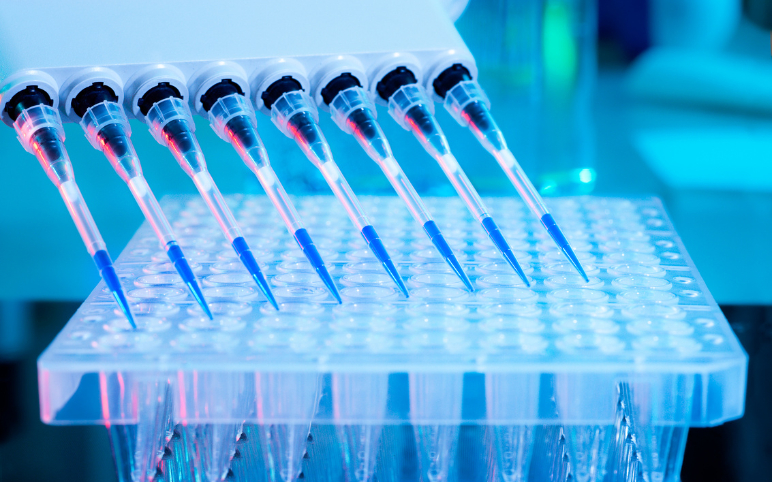
Dec 23, 2019
The past few decades have seen significant advancements in the medical sector. Technological intervention is one of them. Discovery of the remarkable property of Stem cells to be able to differentiate into different types of cell forms, replicate and express themselves as their parents is one of the milestone-discoveries in the medical domain.
Stem cell transplants involve the replacement of diseased or ineffective stem cells with healthy new stem cells. The most common forms of Stem cell transplants are Allogenic and Autologous Stem cell transplants. Autologous transplantation uses a person’s stem cells, whereas an allogeneic stem cell transplant uses stem cells from a donor. Since the advent of bioengineering, Autologous cell therapy market (ACT) has been the primary focus of many pharma and biotech companies. This is attributed to the facts that ACT minimises the risk of immunological reactions, incompatibility and infections due to graft or cell culture.
Autologous cell therapy (ACT) has been successful in producing skin substitutes and treating chronic inflammation, burns and pressure ulcers, and improving the healing process.
Article in PDF
Autologous cell therapy has produced promising therapeutic outcomes in the treatment of neurodegenerative disease, damaged myocardium, cosmetic purposes, corrective surgeries, and other disorders such as acute radiation; ischemia; ocular disorders; and kidney diseases.
There exist several pieces of researches that suggest that autologous hematopoietic stem cell transplantation holds the potential to treat renal diseases, as traditional treatment practises for treating kidney are no longer adequate, and current kidney disease treatment practices depend on the availability of endogenous progenitor cell populations.
Global morbidity and mortality rates due to Kidney diseases are on the increase as they increase the prices of cardiovascular diseases, diabetes, hypertension, infection with human immunodeficiency virus (HIV) and malaria. According to a study, the Global Burden of Disease (GBD) 2015, kidney diseases were responsible for 1.2 million deaths, 19 million disability-adjusted life-years (DALYs) and 18 million years of life lost attributed to cardiovascular diseases due to reduced glomerular filtration rates.
Kidney diseases are often concomitant diseases, as most of them are due to diabetes and high blood pressure. Chronic Kidney diseases are recognised as a public health crisis and are increasing the global health burden. According to Kidney.org, Chronic kidney disease (CKD), is responsible for more deaths than breast cancer or prostate cancer. Chronic kidney disease prevalence is estimated to be around 37 million in the US. Shockingly, most of the CKD patients don’t even realise they have it. Moreover, 1 in 3 American adults is at risk of developing CKD.
Stem cell therapies have emerged out as potential treatment approaches for Kidney disease. The ability of stem cells to be able to restore renal function has sketched a bright and optimistic future for the acute and chronic kidney disease therapy market.
Foetal stem cells (FSCs), multipotent cells, can be regenerated into cells that form different tissues and organs of the body such as hematopoietic, mesenchymal including kidney cells, endothelial, epithelial and neural stem cells.
Autologous cell therapy due to their regenerative, transformative, and homing properties, theoretically have the potential to cure any condition that involves cellular pathology by replacing those cells.
Way forward
Due to the efficiency Autologous cell therapy offers, a recent search has revealed over 1000 clinical studies ongoing to evaluate the efficacy of the ACT for different indications.
However, many hurdles stand in the way. Despite recent advancements made in the field of Autologous stem cell therapy, it should not be elapsed that over-enthusiasm and blind trust can create put ACT in negative limelight. Without saying, it is essential that every ACT is scrutinised properly before its administration as it may result in a disastrous outcome.
Manufacture of each cell line requires a couple of months, which are then reprogramed as per need, whose again efficiency rate varies between 0.01-0.1%. If the desired cee line is obtained, storing them in cultures become a massive task for more extended periods, as a slight alteration in its genetic makeup will ruin the while culture and render it non-viable. Although efforts are being made to control the cost of the therapies, ensuring no compromise is made with safety, the price remain the most significant obstacle as stem cell therapy and its research is associated with a hefty amount of cost.
Without a doubt, Autologous stem cell therapy promises of bright future for patients suffering from different ailments, however, there still are gaps to be filled between literature knowledge of researchers and their practical implementation to yield productive results.
Article in PDF

